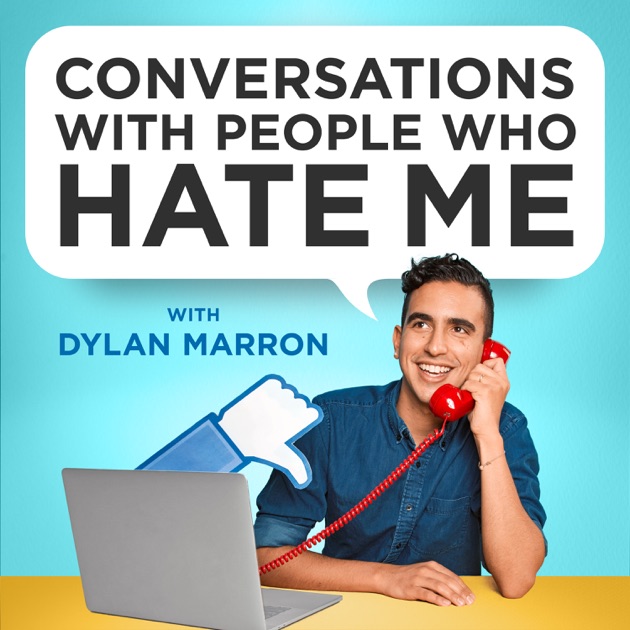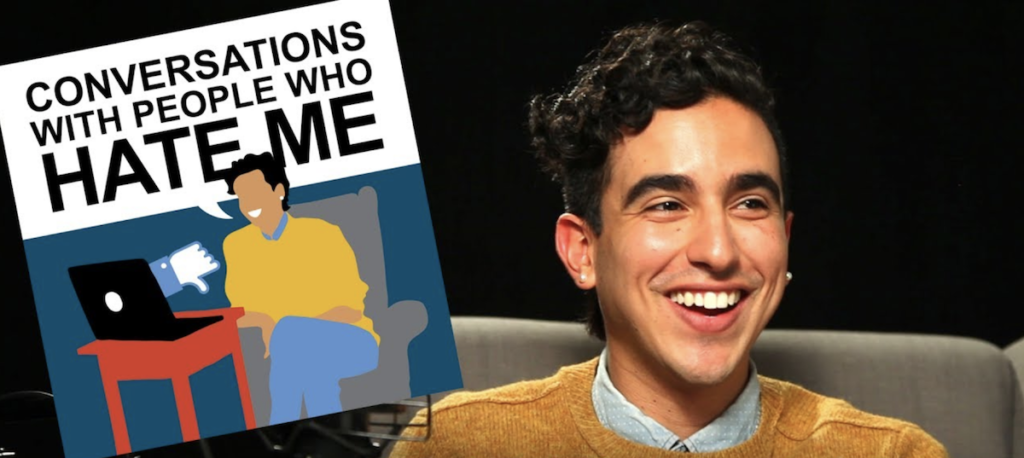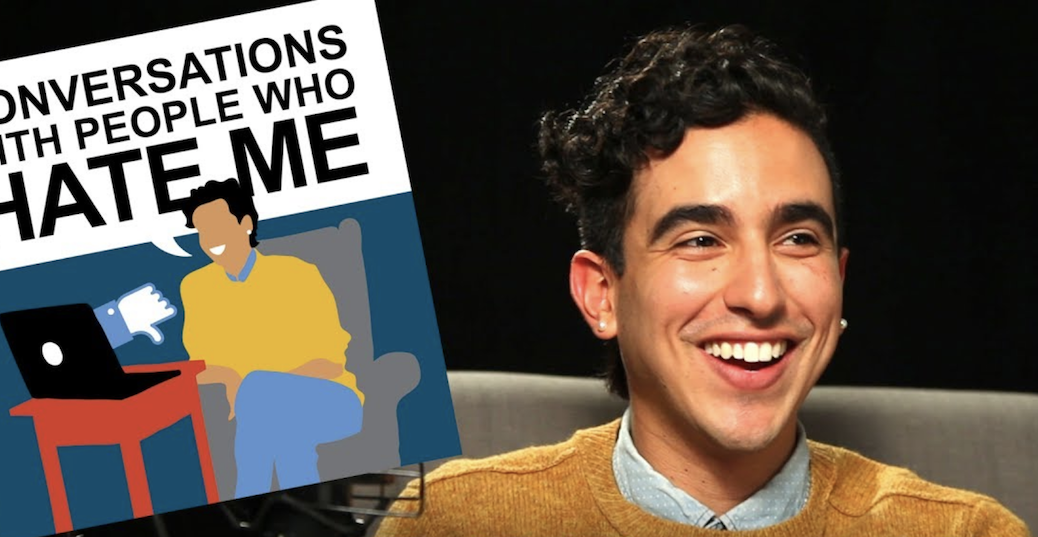

I remember when this podcast went live, boosted somewhere into my online feed because I had been a fan of Welcome to Night Vale, even as I felt it slipping from my grasp of enjoyment (it’s back now).
“Conversations With People Who Hate Me” is a podcast initially beginning with Dylan Marron, the creator, reaching out to people who have left him mean comments on his online work. They discuss the comment, among other things, and while not strictly having to come to some ample, satisfactory conclusion, usually both parties leave the table feeling different to how they sat down at it. It would later evolve into Dylan moderating a conversation between two people – one whose work or art piece or the like received a mean comment, and the person who left it.
I thought this was an interesting idea when it first came out back in 2017, mostly because I’d seen nothing like it outside of thinking back to when you’d get taught as a kid to “be nice”, or “not get angry” that kind of thing, that parents kind of do: “Remember to share!” when they’re, I don’t know, in the kitchen, and not watching you not share. “Just talk!” felt like impractical advice, I wasn’t sure how it would help, if it even could. But I remember listening to a few episodes before I fell off of podcasts entirely, (not for any particular reason, I think it would mostly down to this itch in my brain that told me if I’m listening to people speak then I have to listen and I found myself unable to do anything else if I had a podcast on, and I must not have been getting enough A-Level revision done as a result) listening to the back and fore of a conversation that would definitely frustrate me, but I found Dylan was navigating well. It wasn’t something I could have done. I’m not certain it is now, five years on.

The book was quite a lot about how the podcast came to be, and what was learned during its creation process. Which is fine, truthfully, I wasn’t sure it would be about anything else since the book and the podcast shared the same name. There is a tale woven within it about what the internet is and what it could be – how it effects us and the kinds of things, good and bad, it can lead us to doing or feeling. I enjoyed seeing the depth of something I had liked and then lost hold of years ago, re-entering my vision in a way that contextualised and solved what probably caused me to drop it in the first place. I don’t think I was ready to have the kinds of conversations Dylan was having then, and while I’m not convinced I am now, either, one thing I found dazzlingly soothing was the understanding of the “Everything Storm”. The “Everything Storm” is kind of how it sounds: everything is happening all the time, all at once, and if you can’t keep up, someone on the internet definitely thinks you suck. I never realised this was what was causing my own version of an internet fatigue, but on reading Dylan’s detailing of his own (even as it was attributed to discussions he was having and manifesting as different emotions and actions for him), I was like, oh man, this is it. This is what pushed me to the private twitter with all of my ten highly vetted followers, what made me rest my phone face down. It was nice to put a name to that weird feeling of guilt when something happens and all I can think when I look at it was, “Oh no. Not now. Please.”
This was definitely a feature of the book I really enjoyed, the detailing of the arcs of a conversation, serving you pieces you can recognise and take away with you, the smallest of navigation tips to assure your nerves if you ever take on the kind of conversations Dylan does.
The book is delightfully written, reading like a winding story while instilling a genuine lesson. I don’t often read non-fiction, but when I do I find I prefer it to feel almost personal. I enjoyed this deep dive into the very back of Dylan Marron’s mind: what lead to the podcast and the further book, and all the nuances of creation that came both before, and during, this chapter of his life. I can see why it would have been difficult to write, after learning it was supposed to release in mid 2020, not the first half of 2022. The deliberation of what may come of these “pieces” – the consequences to all of Dylan’s actions, in a way -was purposeful and honest. Which is refreshing to see in world tearing itself apart wondering who the main character of the day is, and how exactly then can get got.
I think Dylan Marron is the kind of person you either quietly follow through the years, even if you’re not aware that you are (which is the category I fall into: I heard of him through his work on Welcome to Night Vale, and found myself coming back to his page every so often to see what, if anything, had changed), or, one day, you happen upon him by accident entirely. For a long time he was just “that voice on that show I used to listen to”, but I realise now Dylan is much more and has been doing much, much more than that. I get the feeling that this is something of a memoir rather than a self-help-essay-type of book like Good Vibes Good Life by Vex King, which I really, really like. It feels real and honest; genuine and undoubtfully true. It has a similar kind of vibe to Elizabeth Gilbert’s Big Magic – a snippet of a wide, three-dimensional life, and how it made an unfathomably large ripple across the rest of that person’s days.
It was a fantastic read. I don’t know that I would recommend it to everyone, but I think it’s one of those books where if you look into it yourself and think yeah, I can get behind this, then do.


